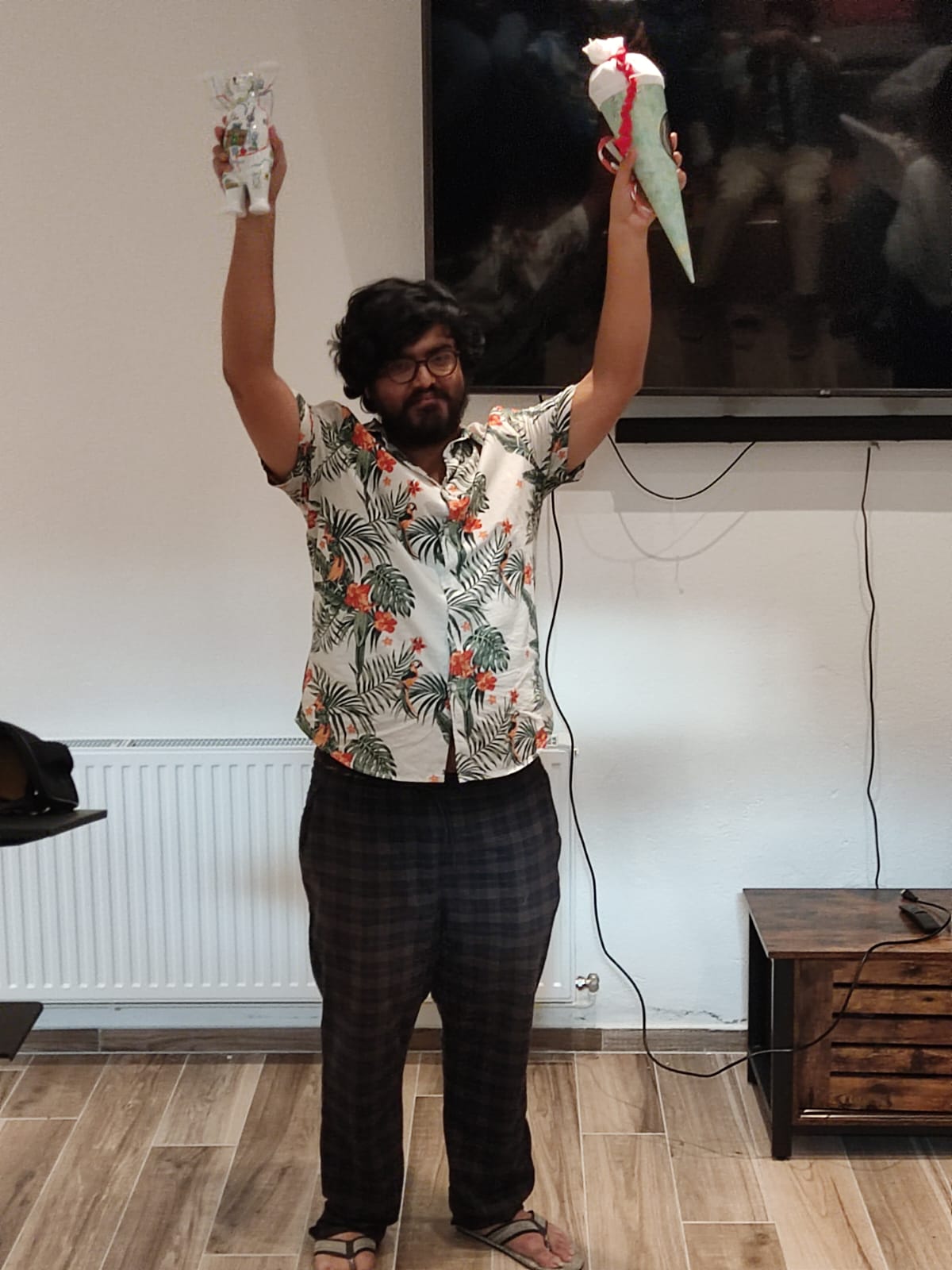The Sundarbans project: environmental protection, climate change, education and migration stories
Tita’s social commitment began in India in 2019 and consisted of organizing aid for people affected by the frequent cyclones in the Sundarbans region of West Bengal. In collaboration with the local organization Green Crusaders, which is active in this region and is committed to the sustainable development of village communities by combining environmental awareness among residents and educational initiatives for them, Titas not only decided to make this a permanent project, but also recognized at the beginning of the Covid-19 pandemic and after the devastation caused by cyclone “Amphan” in spring 2020 that environmental problems, especially in India, are linked to social problems and that the first cannot be solved without the latter.
Green Crusaders, according to Titas, therefore decided to tackle the most fundamental social problem of this region: the lack of access to education, which led to the establishment of the William Carey Pathshala School, offering free, informal education in the form of storytelling, arts and crafts and exercise classes to 45 students in a small one-story building in Patharpratima. The aim is also to arouse pupils’ interest in various types of scientific experiments and observing stars.
As part of the SBW Berlin scholarship program and the development of his social project, Titas created several animations and posters for this school that illustrate climate change to the students and also point out the importance of environmental protection: for example, by recycling plastic bottles and using water sustainably. Titas explains, “If you ask about the relationship we are trying to establish between environmental awareness and education, I would say that this is a double-edged approach that we are taking. Science education will help students better understand the environmental challenges they face, creating meaningful awareness that can lead to tangible results. At the same time, an appropriate environmentally conscious curriculum can make education socially responsible.”
Education has always played an important role for Titas. He emphasizes that it is “really important to him to bridge the gap between urban and rural, educated and uneducated communities through a solid sustainable education plan.” He comes from the Kolkatta region himself and has experienced the plight of these communities first-hand. So his many projects are not just about creating environmental awareness through education in some of the most vulnerable communities in South Bengal, but also about starting and maintaining a discussion on how these communities can tackle local problems first and find local solutions themselves to enable a sustainable future. He is therefore championing community projects with the help of Green Crusaders. These include campaigns and workshops in which, for example, women from Shitalia, Shandeshkhali in West Bengal, learn how to use sewing machines in order to earn a small additional income in the long term. Internship opportunities are also created for students who want to help Green Crusaders maintain the website or look after pupils at the William Carey Pathshala School at weekends.

In addition to his social commitment, Titas says he has always been interested in expanding and deepening his own knowledge of history, politics and migration. He studied North American Studies at the FU Berlin and completed his Master’s degree there very successfully, although it was not always easy. He says: “The first thing that came to my mind when I thought about doing a Master’s abroad was “DIY”, an acronym that is supposed to empower people all over the world. From a life of family…I was to move to a completely different environment where I have to figure it all out myself (sic)…During my time at SBW (I discovered) another motto: “DIT” or “Do it together.” This applies to my life in Rudower Str. as well as to my professional endeavors.” It was the exchange between him and SBW Berlin as well as other scholarship holders in joint brainstorming sessions or at other joint events that helped him immensely to motivate himself again and again for his projects and to develop new ideas.
From round table discussions on International World Environment Day to lectures and publications on the intersection between environment, migration and politics, Titas has always challenged himself to share his passion for education and environmental protection with new audiences locally and globally. While planting a fig tree together with SBW Berlin and other scholarship holders in 2021 as a symbol of community, growth and a shared environmental consciousness, in 2022 he co-authored an academic photo essay on the pandemic, its consequences and impact on the climate crisis in the Sundarbans region. After successfully completing the SBW Berlin scholarship program and returning to India, he continued to work on his social project and collected stories of widows who lost their husbands to tiger attacks as a Future Rising Fellow. In a film documentary, Titas illustrated how they now earn their own living while continuing to fight for gender equality and climate justice.
When Titas is asked about his plans for the future, he enthusiastically shares that climate policy remains at the center of his interests and that he is aiming for a doctorate in the coming years in order to reach even more people, especially young people, and get them excited about environmental protection and encourage them to learn new things and help others. We are therefore delighted to continue supporting Titas in an advisory capacity and are very excited to see what else he will achieve. In any case, we wish him every success in all his endeavors, or better still – always good luck.
KONTAKT
Füllen Sie bitte das nebenstehende Formular aus, um mit uns in Kontakt zu treten. Wir freuen uns auf Ihre Nachricht.

